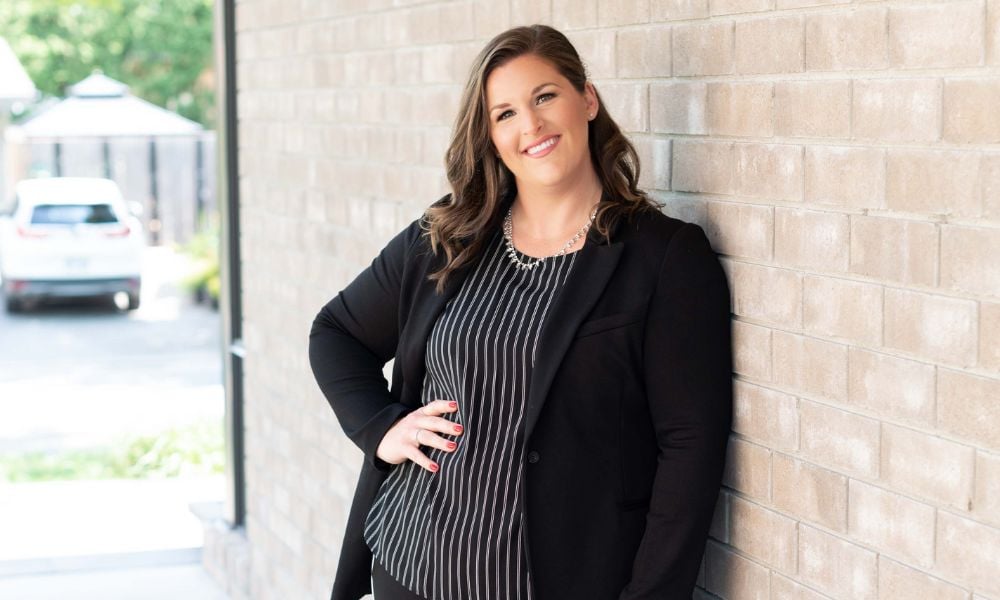Virtual solutions can still offer many benefits, says agent

For mortgage agents and brokers used to dealing with clients in person, one of the most profound shifts at the onset of the COVID-19 pandemic was the transition to fully virtual arrangements.
Public health measures, office closures and social distancing regulations as a result of the rapidly spreading virus meant the vast majority of mortgage professionals chose to conduct business and interact with their clients either by email, over the phone or through video calls, a striking change for those who had previously favoured face-to-face meetings.
Those restrictions have largely been rolled back, with Canada returning to something resembling normality as downtown foot traffic in major cities continues to grow steadily and with most offices across the country having either fully or partly reopened.
An Ipsos poll found that almost three-quarters (74%) of Canadian workers had returned to their pre-pandemic working conditions, with just 12% working fully from home. Still, while many brokers and agents will have returned to the office, it appears the prominence of virtual solutions in conducting mortgage business isn’t likely to go away anytime soon.
Liane Moskal (pictured top), mortgage agent and team lead at the Ottawa-based KeyRate Corp., told Canadian Mortgage Professional that while she had always favoured in-person arrangements prior to the pandemic, she hasn’t returned to that arrangement to date in 2022, continuing to transact through virtual solutions.
Read next: The social media revolution – how has it changed mortgage brokering?
“Before the pandemic, I met with every single client – it was rare that I didn’t,” she said. “But obviously now with COVID, everything’s emails, phone calls, and Zoom – and I haven’t seen any changes. That might change in the fall, but everyone is very happy to do it over the phone or in Zoom now.”
Of course, while not having to meet clients in person for each step of the mortgage process may speed things up considerably for all parties, it’s still important to maintain the same rigour and attention to detail. Moskal said that making sure the client has the full picture and clear communication is essential - part of the reason that she writes a recap email to each customer after they’ve had a Zoom meeting or phone call to reiterate the talking points of what they discussed.
Establishing a personal connection and getting a better understanding of each client is also as important as ever. “It definitely helps to see clients in person, but I always make a point to get to know the client over the phone for a little bit before I do an application,” Moskal said, “just because I need to know about their personal life in order to really help them fully financially.”
It’s “quite rare” that clients want to meet in person, according to Moskal – possibly an indication that Canadians shopping for a mortgage value the convenience, speed and time saved by speaking with an agent or broker from the comfort of their own living room.
Many mortgage professionals were already utilizing social media in their marketing efforts before the pandemic broke out, but a prominent digital presence became a huge asset for brokers in making a name and establishing themselves as a voice of expertise in the industry over the past two years.
Read next: Mortgages in 2022 – Four trends to look out for
That’s perhaps doubly relevant now with the mortgage market cooling and brokers having to find new ways to source and secure business, and Moskal – who was named KeyRate’s Top Social Influencer in 2020 – told CMP that the value of social media has only grown in the industry in recent times.
“I use social media to keep people updated and discuss anything that [they] should know about, and it’s very important during these times because everyone is home and they’re on social media more,” she explained.
“When you’re sharing good information about mortgages, when someone has a mortgage question, my name will pop up in their mind because they’ve seen me post about mortgages consistently. So, it has helped drive business.”
Ultimately, there’s no right or wrong answer as to the best way of conducting business with clients, Moskal said, as long as brokers are ensuring that they provide the best possible advice and experience for their customers whichever way they operate.
“I feel everyone kind of got almost too comfortable staying at home, so they’re happy to deal with their things at home,” she said. “As long as you’re providing good service and getting to know your clients, then you won’t have a problem getting their business.”



